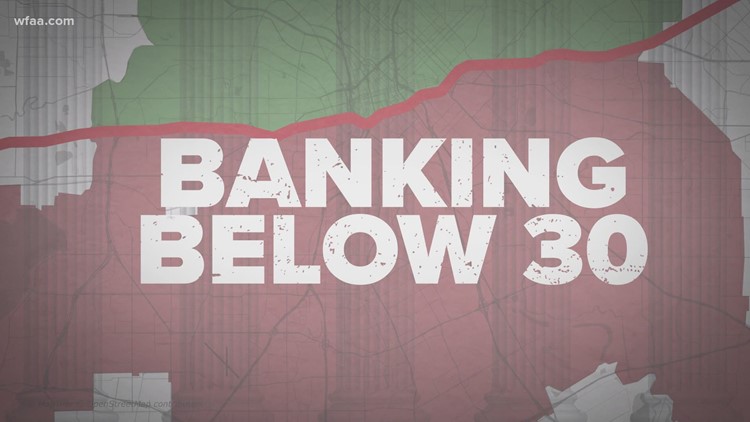DALLAS — A Texas member of the U.S. House Financial Services Committee said the body will look into discrimination in banking after WFAA's "Banking Below 30" investigation.
Our investigation analyzed maps of banks' service areas as part of the federal Community Reinvestment Act, also known as the CRA. That law prohibits banks from arbitrarily excluding low- to moderate-income neighborhoods from their service areas. In other words, the CRA is one of the laws prohibiting the practice known as "redlining," and some critics have called it too lax.
“Among the many issues concerning CRA, I expect that this one is likely to be on the calendar of the Financial Services Committee in the 117th Congress," U.S. Rep. Al Green, D-Houston, told WFAA in a statement following our story.
"While I am currently the Chairman of the Subcommittee on Oversight & Investigations, if I am fortunate enough to hold this position again in the next Congress, I will give appropriate consideration to these issues," he added.
Rep. Eddie Bernice Johnson, the ranking member of the Dallas congressional delegation who represents southern Dallas, already said she would call for hearings on banking discrimination following our report. Reps. Collin Allred and Marc Veasey have also pledge to support reforms.
“I know financial institutions are in it to make money. I understand that," Johnson said. "But also, it should be something within their goals for fairness and justice for people who are not wealthy."
Our findings
Here's a recap of what we found in our original story.
Above I-30, there's a high concentration of white people and upper income neighborhoods. South of 30 is mostly Black and Hispanic people, with 38% of people living below the poverty line.
Under a law called the Community Reinvestment Act, or the CRA, banks are supposed to meet the credit needs of the entire community.
So, we asked all 105 banks in Dallas County to provide us their service area maps -- the area where they do business. What we found is 20% of the banks in Dallas County draw maps that exclude all-or-parts of Southern Dallas.
For example, a bank called Interbank serves all of Ellis County, Erath, Sommerville, Hood, Parker and Tarrant Counties but only half of Dallas County.
Interbank declined multiple requests for a comment. In its most recent bank examination, regulators said, "No evidence of discrimination identified."
And records show 98% of the time bank regulators give Dallas banks a passing grade for how well they serve the need of low to moderate income communities.



